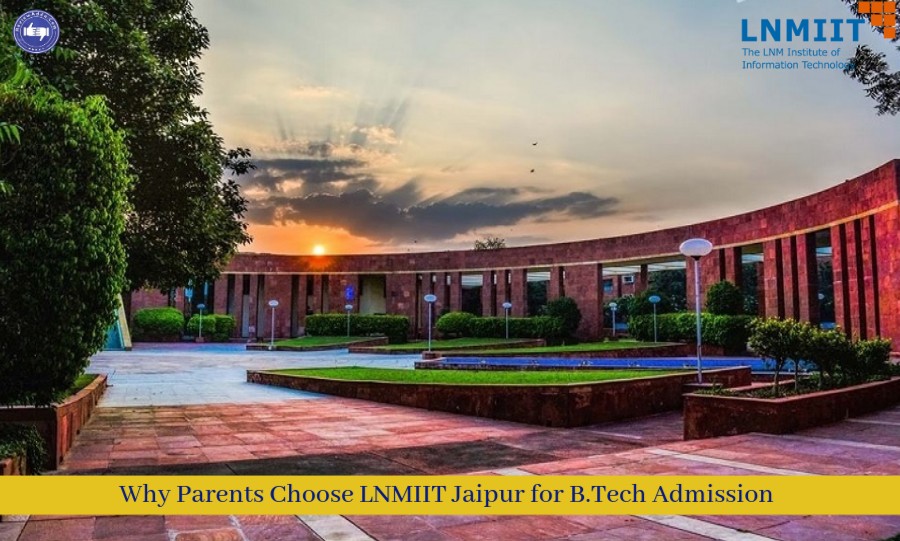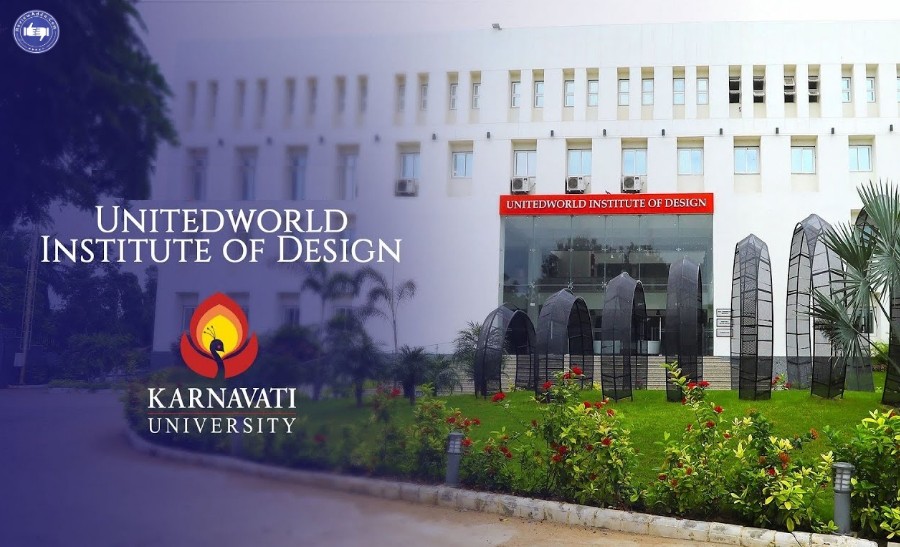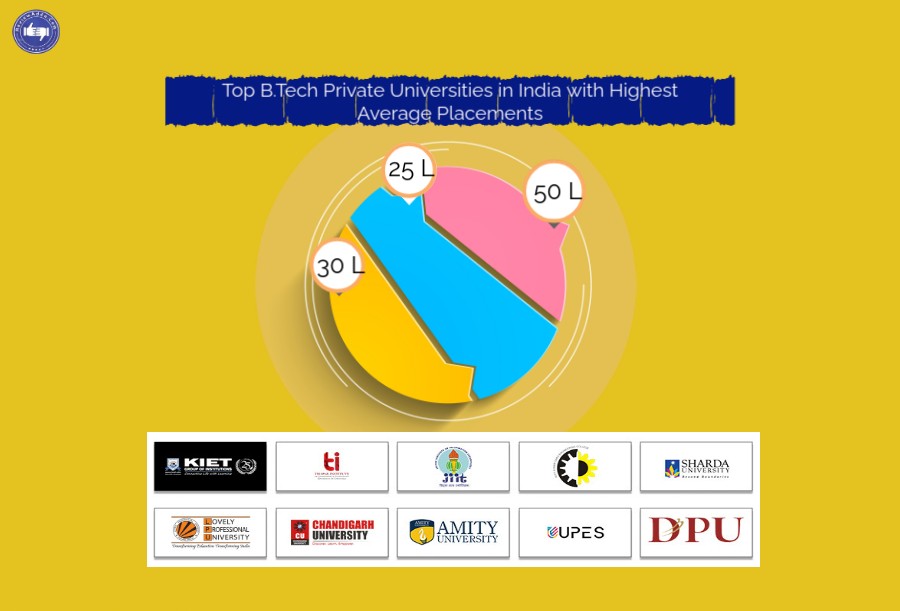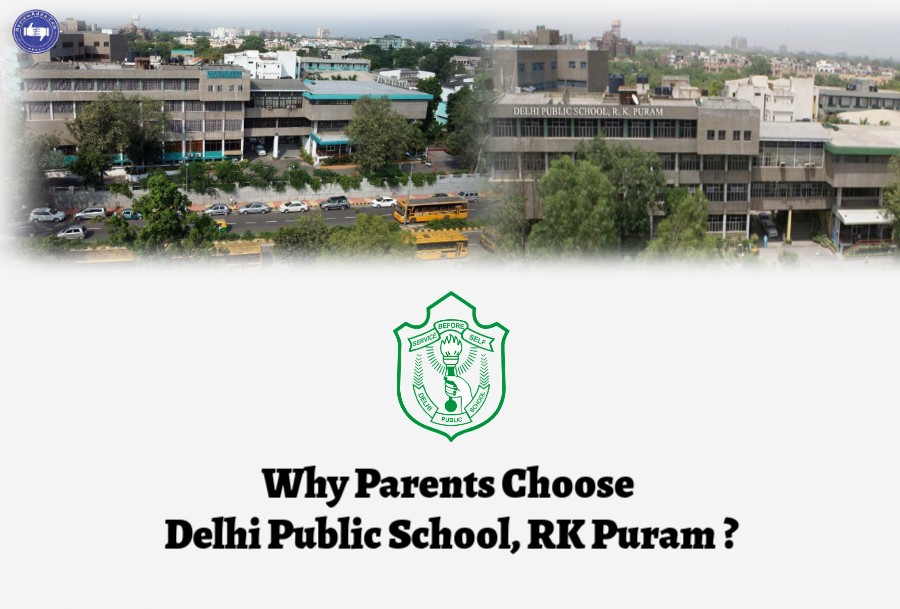Why Students prefer a 4 years bachelor's degree in India?
During this competitive era, the striving of a quality education plays a crucial role in achieving success. Among the various available choices of educational courses, the four-year bachelor's degree has emerged as a popular choice for students in India.
Through this post, we delve into the factors that have contributed to the thriving acceptance of four-year bachelor's programs in India, as well as focus on the benefits they offer students, equipping them with a competitive edge across diverse sectors.
Importance of higher education in India
Due to the multifaceted impact of higher education on individuals, society, and the complete nation holds immense significance. Here are numerous key reasons to make you clear the importance of higher education:
Firstly, higher education provides individuals with expanded professional opportunities. They acquire specialised information, abilities, and credentials that are necessary for pursuing fulfilling professions in a variety of disciplines. Higher education offers specialised programmes that train people for certain sectors and professions, whether it be engineering, medical, law, business, humanities, or sciences. A higher education degree is frequently required to obtain well-paying employment and to rise in an organisation, allowing people to achieve financial security and professional success.
Second, higher education significantly contributes to India's economic growth and development. Higher education institutions support industry innovation, productivity, and competitiveness by creating a trained and educated workforce.
Additionally, universities act as hubs for promoting technological growth, R&D, and building a knowledge-based economy. Higher education institutions' research and creativity provide scientific advancements, technical innovations, and business initiatives that all stimulate economic growth.
The function that higher education plays in fostering social mobility is another crucial part of it. Through higher education people from various paths may enhance their understanding of socioeconomic and also escape the limitations of their situation. Higher education promotes equality, inclusion, and social cohesion through social mobility, as a result give a more equitable society.
It is also helpful in personal growth. Students get a chance from being in a setting that fosters their scholarly curiosity, analytical thinking, and general learning. It prepares individual to handle difficult situations smoothly and also promotes traits like flexibility, self-reliance, and resiliency. Higher education fosters a lifetime love of learning, fosters intellectual curiosity, and gives students the tools they'll need to keep learning in a rapidly changing environment.
Higher education institutions work as a center for innovation and research. Additionally, higher education provides Indian students with opportunity to study abroad. Many students opt to pursue higher education overseas because they may access global research networks, learn in a variety of learning contexts, and experience various cultures. International partnerships between institutions of higher learning support knowledge sharing, intercultural understanding, and the globalisation of education. Indian students who study abroad return with widened perspectives, priceless insights, and improved skills that advance India's educational system.
Lastly, higher education plays a vital role in the development of the nation. It transforms the graduates into agents who work in various fields to promote social causes, policy changes, and advance the development of the country's science, culture, society, and economy.
It develops into professionals who work as thinkers, leaders, businessmen, and entrepreneurs, helping to shape India's future.
What are the 4 year bachelor’s degree available in India
Numerous 4-year bachelor's degree programmes in a range of areas are offered in India. The following is a list of popular four year degree programmes:
- B.Tech: The core of the Bachelor of Technology programme is specialized in engineering that includes civil engineering, computer science, electrical engineering, mechanical engineering, and more.
- MBBS: Students who are willing to study medicine and become doctors should choose Bachelor of Medicine, Bachelor of Surgery as their degree programme.
- B.Sc.: In Bachelor of Science programmes there are various disciplines, including physics, microbiology, mathematics, biotechnology, chemistry, biology, environmental science, and others, that gives a clear perspective to the aspiring candidate to choose this as their career programme.
- B.A.: This is one of the most-taken career programmes by students. Bachelor of Arts programs cover a wide range of subjects such as Economics, English, Sociology, History, Political Science, Psychology, and more.
- B.Com: Business-related subjects such finance, accounting, human resource management, marketing, and entrepreneurship are the major focus of Bachelor of Commerce programmes.
- BBA: This type of programmes give students a foundation in management and business administration concepts, preparing them for jobs in the corporate sector, this is popularly known as Bachelor of Business Administration.
- B.Arch: Students who are willing to proceed their career in architectural building, design, and planning need to enroll in Bachelor of Architecture to practice architecture professionally.
- Bachelor of Pharmacy (B.Pharm): Students enrolled in B.Pharm programmes get training in medication development, pharmaceutical sciences, and dispensing, preparing them for jobs as chemists or in the pharmaceutical sector.
- B.Des: Students interested in pursuing jobs in design fields including industrial design, fashion design, interior design, graphic design, and more might choose Bachelor of Design programmes.
- BHM: The hospitality sector is the main emphasis of Bachelor of Hotel Management programmes, which provide students with the abilities and information needed for jobs in hotel management, tourism, and related disciplines.
- BJMC: Students who want to proceed their career in professions such as journalism, media, advertising, and broadcasting, Bachelor of Journalism and Mass Communication programmes put a strong emphasis on media studies, journalism, mass communication, and public relations.
- B.Sc. Nursing: Students who are willing to pursue their career in healthcare and nursing can enroll in Bachelor of Science in Nursing programmes.
Benefits of 4 year bachelor’s degree in India
In India, one of the popular choices among students is pursuing a 4-year bachelor's degree. Let’s learn how it’s the best choice in India.
1. Academic Rigor and Depth
Students can go more deeply into the topic of study they have selected by enrolling in a 4-year bachelor's degree programme. With a longer period, students have more opportunity to investigate many facets of their subject and develop a thorough grasp. The course material is designed to give students in-depth understanding by addressing both theoretical ideas and real-world applications.
2. Specialization and Career Opportunities
A 4-year bachelor's degree allows students to specialise in their area of interest because of its extended duration. This specialisation aids students in developing competence in a particular field, increasing their marketability for employment. Candidates with specialised knowledge and abilities are frequently valued by employers, increasing the likelihood of landing desired employment possibilities.
3. Comprehensive Curriculum
The extensive curriculum provided by these programmes is one of the main reasons why students choose to pursue a 4-year bachelor's degree in India. The prolonged timeframe permits a deeper research of themes and a more complete grasp of the selected profession than shorter length degrees, such 3-year programmes. Students get the chance to explore the complexities of their field, pick up useful skills, and build a solid foundation that will help them succeed in their careers.
4. Enhanced Skill Development
A 4-year bachelor's degree gives students plenty of time to acquire the many abilities they will need for their future endeavours. The extra skill-building courses, internships, and practical experiences can be added because of the lengthened period. Students can participate in research projects, industry partnerships, and hands-on learning, all of which advance their professional development and help them become well-rounded individuals.
5. Specialization and Flexibility
Students who pursue a 4-year bachelor's degree have the benefit of being able to try out a variety of subject areas before settling on a specialty that matches their interests and long-term objectives. Students who are unclear about their career path or who wish to research several professions before settling on one are notably benefitted from this freedom. It enables individuals to focus on the topics that genuinely speak to their passions and make wise decisions.
6. Competitive Advantage
In the current market of employment, employers are looking for applicants who have an array of skill sets and in-depth knowledge of their industry. In comparison to their friends who have chosen shorter-term programmes, students with 4-year bachelor's degrees have an edge.
Students have a benefit when applying for employment, internships, or continuing graduate studies due to an intense training, extensive curriculum, and real-world experiences obtained throughout the lengthy period.
7. Adaptability to Industry Requirements
In India the working industry is transforming swiftly due to which businesses are always seeking for experts who can adapt to transforming demands. By pursuing a four-year bachelor's degree, students can stay abreast of technological enhancements, market trends, and innovative practices. This educational journey equips students with the necessary tools to empower them to confront future challenges with confidence, excel in a dynamic and rapidly evolving work environment.
8. Holistic Personal Growth
Beyond academic success, a 4-year bachelor's degree also makes a substantial contribution to students' personal development. The program's prolonged duration produces an atmosphere that promotes cooperation, problem-solving, and critical thinking. Students can participate in leadership positions, extracurricular activities, and community service, all of which help to develop their character, teach values, and promote a wholistic outlook on life.
9. Research and Innovation
Extended bachelor's degree programmes provide students the chance to get involved in innovation and research. Students learn research techniques and get practical experience through projects, internships, and practical assignments. This exposure to research fosters a culture of creativity among students by encouraging a sense of curiosity and investigation.
10. Global Recognition
A four-year bachelor's degree is highly recognised internationally and is recognised by many universities and employers. This gives students the freedom to pursue advanced education or look for work prospects overseas. For students who want to explore worldwide options, the lengthier programme duration frequently matches with foreign academic norms, allowing for easier transfers.
11. Network and Connections
A four-year bachelor's degree programme gives students numerous chances to get along with peers from various cultures, backgrounds, and viewpoints. Their ability to interact with a range of people enhances their interpersonal skills, broadens their social circle, and enables them to work together in a number of professional contexts.
College life offers a platform for students to establish valuable connections with faculty, alumni, industry experts, and professionals through workshops, seminars, internships, and networking events.
12. Cultural and Social Exposure
Introducing students to diverse cultures and communities, institutes and universities play a crucial role. During their four-year undergraduate program, students are provided ample opportunities to engage in a dynamic social and cultural knowledge. This type of exposure enhances their understanding of different cultures, broadens their perspectives, and equips them with the essential skills to thrive in an interconnected world as they interact with peers from several backgrounds.
13. Personal Growth and Confidence
A 4-year bachelor's degree gives students ample time to experience considerable personal improvement. They encounter difficulties, get around hurdles, and grow resilient. Students build their self-esteem, confidence, and become well-prepared who are ready to face the challenges and problems of the real world whether they are academic and extracurricular activities.
The programmes provide students with a strong base of information and abilities. It fosters a love of learning and gets pupils ready for a lifetime of learning and professional growth. The education they received over the course of these four years prepares them for lifelong personal and professional development.
14. Higher Employability
A 4-year bachelor's degree program's extensive length and thoroughness greatly increase students' employability. Employers frequently look for applicants who have a solid educational background and pertinent abilities, which students develop throughout their degree programme. Graduates of 4-year programmes are more likely to find suitable work since they have a competitive advantage in the labour market.
Conclusion
The many benefits a 4-year bachelor's degree gives are the main reason Indian students prefer it. These programmes give students a strong basis for a prosperous career, from a thorough curriculum and improved skill development to specialisation opportunities and a competitive edge.
Additionally, the flexibility to adapt to industry demands, possibilities for personal development, and the capacity to forge solid networks are all factors that contribute to the appeal of these programmes. A wise move that opens the door to a better future is deciding to pursue a 4-year bachelor's degree.




.jpg)
